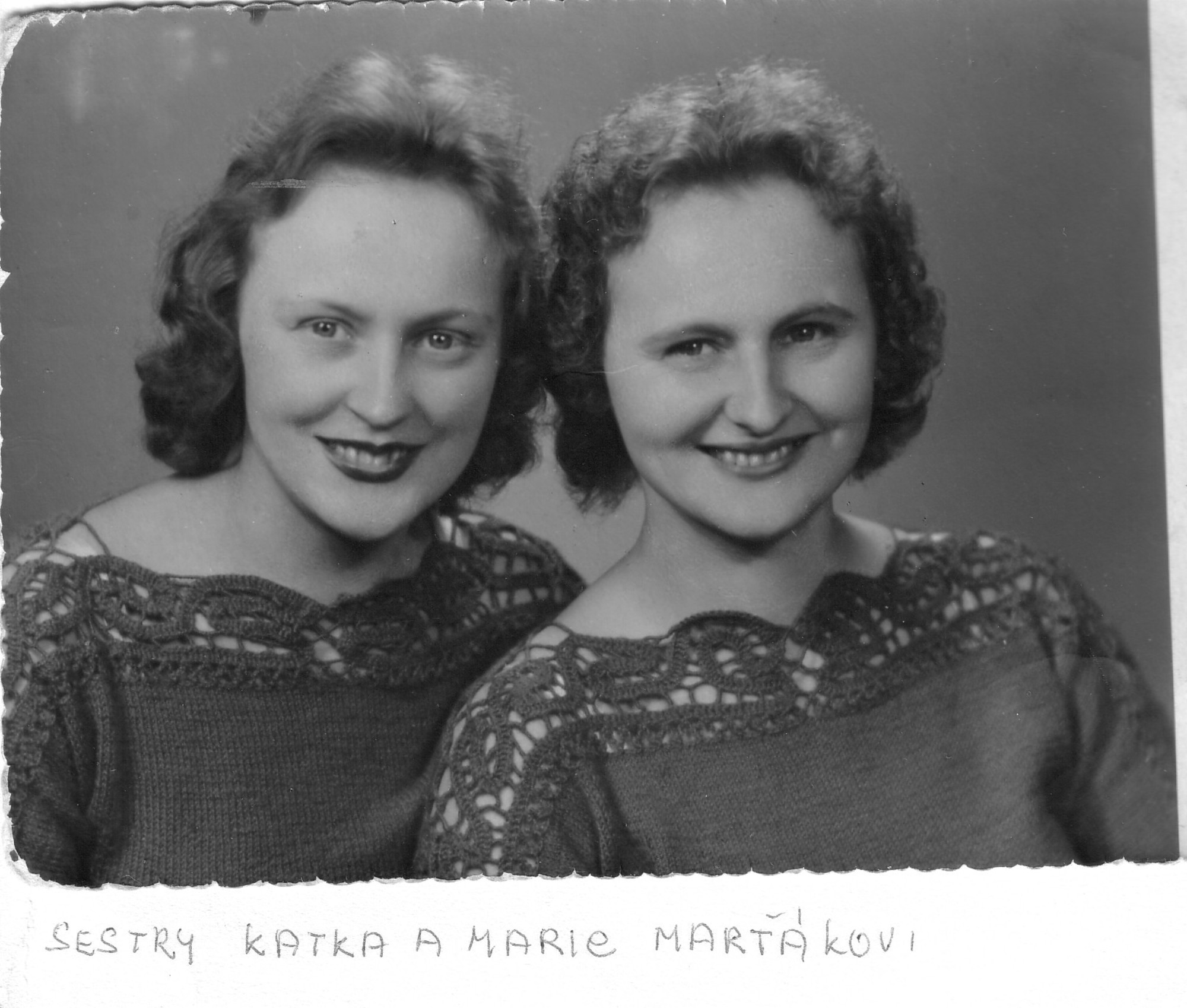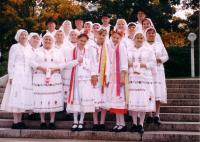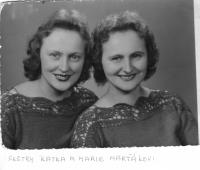We have nothing in common with the Romanians…

Stáhnout obrázek
She was born on November 23, 1933. She married soon after her arrival to Czechoslovakia. She married another man from the Skejuša community, and together with her husband they left for work in Chomutov in 1950. She has two sons. Sisters Kateřina Romaňáková and Marie Malcovská come from a family of seven siblings. They spent their childhood in the village of Skejuša in Romania, where their ancestors had come from Slovakia at the end of the 18th century. In August 1949 they left Skejuša together with their parents and siblings and they were taken to Cheb. From there they got to Troskotovice in southern Moravia and later both of them found their new home in Chomutov. In 1990, the Marťák sisters, which was their maiden name, co-founded a folklore ensemble called Skejušan, and they perform all over the country and abroad as well. Their ensemble makes regular visits to the Slovak village of Kamienka, from which their group originally comes, and to the village of Skejuša in Romania, where their ancestors had been living for 150 years and where both sisters were born. They also perform at festivals of the Lemko culture in Poland. In 1999 the ensemble was awarded in the Strážnice Festival for their authentic handling of the Rusyn folklore. The story of the group of people from which both sisters come from shows the fate of a community of former inhabitants from the Sudetenland, which has been hitherto completely unknown. The Marťák sisters represent a very specific community of Lemkos or Lemak people (their classification as a Rusyn subgroup is not quite precise), who had come to the border regions of Czechoslovakia from eastern Slovakia via Romania. What is especially remarkable is the close-knitness of the community of these people, who have been living in places other than their original home for over 200 years, but who still proudly claim their heritage and origin.

